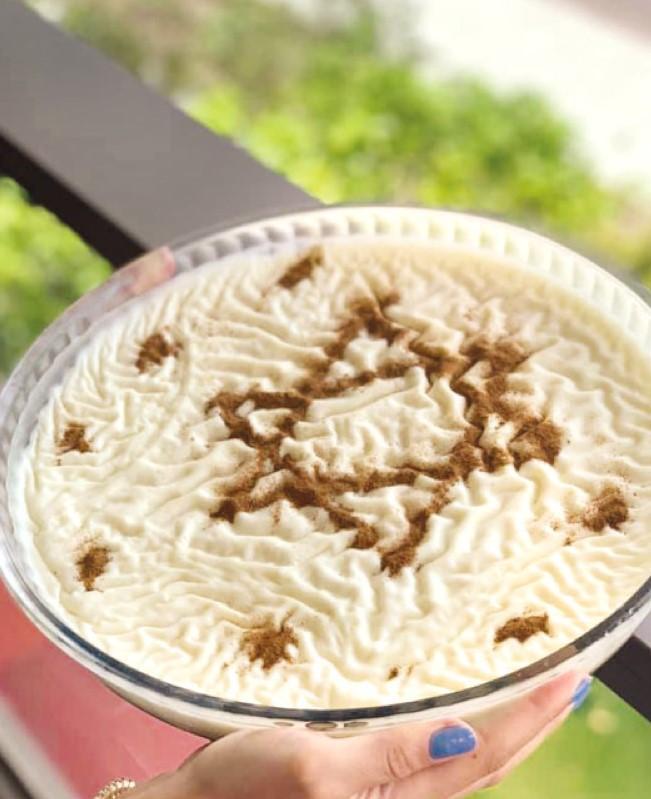New season is for new beginnings

If May is the month of growth, June marks the first harvest of early summer, it stands for collecting the fruits of the seeds sown. In all faiths, the calendar of nature dictates the rituals and religious celebrations regardless of differences in countries and beliefs. Let’s look at the calendar. Yesterday was Pentecost for Christians, and the days of May 25 and 27 last week were Shavuot for Jews, which is the time to celebrate the harvest season. Interestingly, like in many similar spring rituals celebrating the new harvest season, it is customary to dress in white on both days. Likewise, the Turkish spring celebrations Nevruz and Hıdrellez also call for dressing in white and eating white food, mostly milk and dairy. In the Jewish holiday of Shavuot table milk and cheese is essential, and it is time to stay away from meat. Fresh cheese and milk desserts are among the must-eat delicacies during the days of Shavuot.
In Türkiye, the typical Shavuot food is either “sütlaç,” the ubiquitous rice pudding which can be found throughout the country, or “leçekoça,” a rice starch-based milk pudding which simply means cooked milk. In some of the recipes, the rice or milk pudding is baked, which I find very similar to the milk halva of Bursa, where a milk pudding akin to a sweetened bechamel is made and then baked to gain a burned top layer like a brûlée. In Izmir Sephardic cuisine, “sütlaç de subya” is made with rice pudding or pudding made from non-dairy milk made with pounded melon seeds. According to the great historian Nicholas Stavroulakis, writer of the unforgettable “Cookbook of the Jews of Greece,” the ultimate Shavuot pudding in Thessaloniki is sütlaç, identical to the rice pudding we have in Türkiye. Years ago, my friends Faye and Yakir Levy wrote in Jerusalem Post about the Sephardic favorites for the day: “The selection of creamy puddings, which are traditional for Shavuot among Jews of Turkish origin, took us back to our favorite kind of eatery Istanbul - the muhallebici, or pudding shops. Actually, the exact translation would be muhallebi shops because they feature an array of wonderful, creamy desserts of that name, a Turkish specialty known in Israel is mallabi.” They also quoted Istanbul-born writer Esther Benbassa, author of “Cuisine Judeo-Espagnole,” a book devoted Turkish-Jewish specialties who describes the urban city kids as born under the sign of muhallebi, which is so true. City kids are like fed with the finest food such as the velvety satin-smooth milk pudding, no need to chew, melt-in-the-mouth delectable delight, which makes them somehow vulnerable in tough times of adulthood in contrast to rural children. Apparently, Yakir was very fond of mallabi when growing up, though he is far from being “muhallebi” kid, later in life he introduces this silky pudding to his wife Faye.
Our culinary culture in Near East geography is so intermingled that in reality we eat similar food, celebrate similar holidays, attribute similar meanings to the same foods, and above all enjoy similar food. Shavuot is celebrated 49-50 days after Pesah, and Pentecost 50 days after Easter. Interestingly, in Turkish Pentecost is called “Hamsin Yortusu,” which gets its name from the Arabic word “hamsin,” meaning fifty. The truth is all festivities and all the rituals related to spring and early spring are all Pagan in origin, adapted to all faiths, but the true faith of humankind is nature itself, and all offerings are to call for the bounty of nature.
Wines news
June is coming with good news, especially in the wine world in Türkiye. Challenging Master Classes 2023 will be held at CVK Park Bosphorus Hotel on 10-11 June 2023. Shortly known as CMC, the wine event is the ultimate annual great gathering of the wine sector in the country, hosting world-famous wine experts Caro Mauer MW, Madeleine Stenwreth MW and Oz Clarke OBE as judges, as well as bringing together wine producers, hospitality members and wine sector opinion leaders. It is one of the two reference wine tastings events in Türkiye held by “Gustobar Events” that the wineries arrange their bottlings according to these events’ dates. The good side of the event is to create a ground to see the potentials of indigenous grapes where you can take hold of your glass and start sampling hundreds of different labels side by side - grouped according to their density and grape varieties and not according to their producers.
Yet the organizer couple Taner and Ayça Öğütoğlu of Gustobar have another surprise for us. Caro Mauer, the first female Master of Wine from German-speaking countries, will be holding a special tasting on June 3 on German wines. Mauer is a well-reputed coach, mentor, advisor and competence booster for trade professionals challenging them through inspirational and educational benchmark tastings. We are lucky to have her for the tasting titled “All Stars from Germany Riesling and Pinot Noir Grands Crus of the VDP,” which will be held in two sessions featuring the same wines. With only 50 seating in each session, it is a first in Istanbul, a true opportunity to discover the Rieslings and Pinot Noirs of Germany. There will be more wine news in June, so stay tuned and watch this column.
Here is the calendar for Caro Mauer, more news will be coming next week on CMC and Old Vines Conference tasting to be held in London on June 14.
“All stars from Germany Riesling and Pinot Noir Grands Crus of the VDP” on June 3, 2023.
MC A: (11:00-13:00) All stars from Germany Master Classes / Caro Maurer MW
MC B: (15:00-17:00) All stars from Germany Master Classes / Caro Maurer MW
Capacity: All stars from Germany Master Classes are limited to 50 persons/session.
Contact: taner.ogutoglu@gustobar.com, Tel: +90 532 322 25 91












